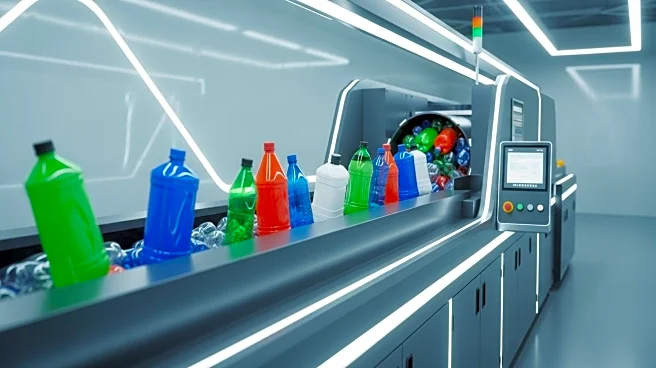What is the story about?
What's Happening?
Northwestern University chemists have developed a new nickel-based catalyst that could revolutionize plastic recycling by efficiently breaking down mixed polyolefin waste. This catalyst selectively targets polyethylenes and polypropylenes, which make up a significant portion of global plastic consumption. The process transforms low-value solid plastics into liquid oils and waxes, which can be upcycled into higher-value products. The catalyst is notable for its ability to work with unsorted waste and even contaminated plastics, such as those mixed with PVC, a polymer that typically complicates recycling efforts. This innovation could significantly reduce the labor-intensive sorting process currently required in plastic recycling.
Why It's Important?
The development of this catalyst addresses one of the major challenges in plastic recycling: the need for meticulous sorting of different types of plastics. By simplifying the recycling process, this technology could increase recycling rates and reduce plastic waste in landfills and the environment. The ability to recycle mixed and contaminated plastics efficiently could lead to more sustainable practices in the plastics industry, potentially reducing the environmental impact of plastic production and disposal. This advancement also holds economic significance, as it could make recycling more viable and cost-effective, encouraging broader adoption of recycling technologies.
What's Next?
The catalyst's introduction may lead to increased investment in recycling infrastructure and technology, as industries seek to capitalize on its efficiency and cost-effectiveness. Further research and development could expand its application to other types of plastics, enhancing its utility in the recycling sector. As the technology gains traction, it may influence policy decisions and regulatory frameworks aimed at promoting sustainable waste management practices.
















